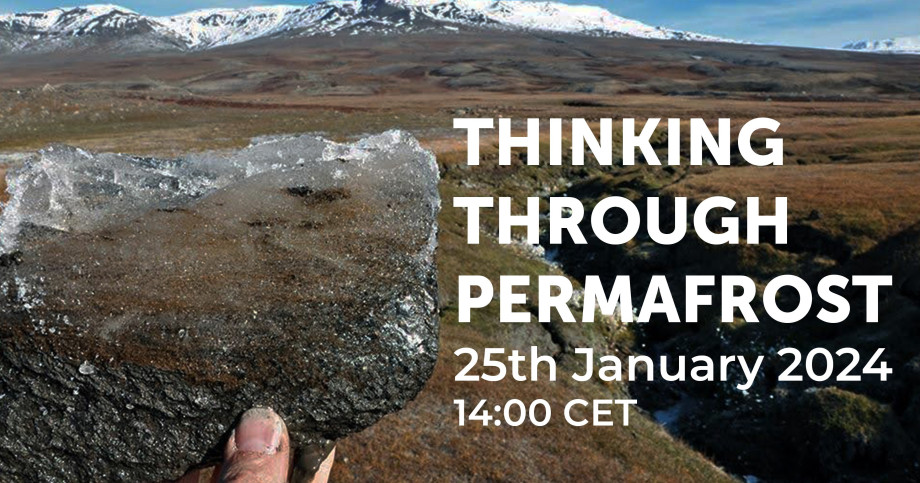Charlotte Wrigley attends 'Thinking Through Permafrost' workshop

In January 2024, a permafrost humanities workshop was held at Sciences Po in Paris and Charlotte Wrigley was invited as a panel expert alongside five other scholars. Permafrost research has long been the sole remit of the natural sciences, but the past few years have seen a burst of engagement with the frozen ground within the humanities as part of a ‘turn’ towards Arctic scholarship. The workshop, titled ‘Thinking Through Permafrost’, was inspired by three recent books in the permafrost humanities: first, historian Pey-Yi Chu’s The Life of Permafrost (2020) which tracks the creation of Soviet permafrost science in the 20th century; second, anthropologist Susan Crate’s thirty-year ethnography Once Upon the Permafrost (2021) which tracks the ways the Sakha indigenous group are responding to climate-change-induced permafrost thaw; and finally, geographer and Greenhouse member Charlotte Wrigley’s Earth Ice Bone Blood (2023) which emphasises the dynamism and unknowability of permafrost as a material and ontological category. These three permafrost scholars were previously on a panel together titled ‘We All Live on Permafrost’, and their work – distinct but complementary – has served as a bedrock for important new interrogations into permafrost within humanities disciplines.
‘Thinking Through Permafrost’, which was arranged by Bruno Latour fund postdoctoral scholar Anastasia Halauniova and historian Sabine Dullin, involved each of the panellists pre-circulating draft articles on new permafrost scholarship. For the workshop itself, panellists delivered a short presentation on their work and received responses from two reviewers: one from the natural sciences and one from the humanities. This novel format demonstrated that interdisciplinarity is a key part of permafrost research, and it was an opportunity for different disciplines to learn from each other. Charlotte’s new exploratory work on permafrost microbes, pathogens, and carbon was well received and she is delighted to be a part of this burgeoning field. The workshop ended with the creation of the SHIP network – the Social Sciences and Humanities Initiative on Permafrost – and all of its members look forward to more exciting permafrost humanities research to come!